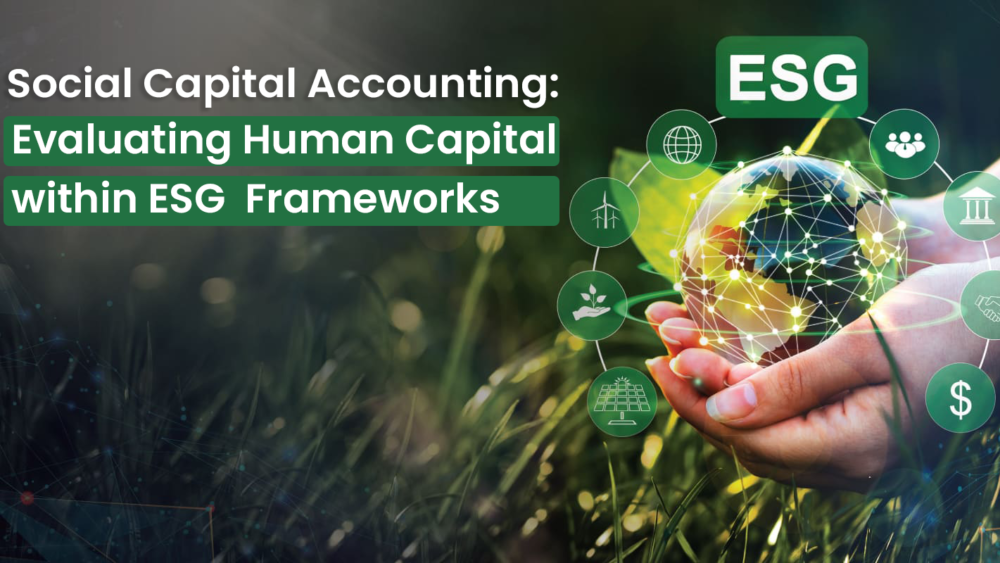:ESG frameworks have emerged as essential tools for evaluating a company’s impact on society and the environment. Notably, while environmental and governance factors have traditionally taken the spotlight, the social aspect, particularly human capital. This is increasingly gaining recognition as a critical component of sustainable business practices. Moreover, this article explores the concept of social capital accounting within ESG frameworks, with a specific focus on Diversity and Inclusion (D&I) in the workplace within the context of India.
Understanding ESG Frameworks:
ESG, short for Environmental, Social, and Governance, represents a set of criteria used by investors and stakeholders to assess a company’s performance beyond financial metrics. ESG frameworks provide guidelines for measuring and reporting a company’s impact on environmental sustainability, social responsibility, and corporate governance practices. These frameworks serve as a roadmap for businesses to integrate sustainability into their core strategies and operations.
In recent years, there has been a growing emphasis on incorporating social factors, including human capital management, into ESG frameworks. Human capital, encompassing the knowledge, skills, and abilities of employees, plays a pivotal role in driving organizational performance and long-term value creation.
D&I as Social Capital:
D&I initiatives are integral components of social capital within ESG frameworks. This makes it crucial to understand that they refer to the promotion of a diverse workforce where individuals from different backgrounds, including race, gender, age, religion, disability, and sexual orientation, are valued, respected, and provided with equal opportunities. D&I initiatives aim to create an inclusive work environment that celebrates diversity and ensures equity for all employees, regardless of their personal characteristics or identities.
“India Diversity & Inclusion Study 2023,” states that while progress has been made in promoting diversity and inclusion, significant gaps and challenges persist, yet, despite these hurdles, organizations are making concerted efforts to bridge the divide and foster a more inclusive work environment. The study underscores the importance of fostering a culture of inclusion to unlock the full potential of diverse talent in the Indian workforce, which is crucial for driving innovation, improving employee engagement, and enhancing overall business performance.
ESG Reporting and Metrics:
ESG reporting frameworks provide a structured approach for companies to disclose relevant ESG information to investors, regulators, and other stakeholders. These frameworks, offer guidelines for measuring, managing, and reporting ESG performance. Such as:
- Global Reporting Initiative (GRI)
- Sustainability Accounting Standards Board (SASB)
- Task Force on Climate-related Financial Disclosures (TCFD)
Key indicators include workforce demographics, representation, employee engagement, diversity training, pay equity.
ESG Governance Framework:
Effective governance embeds these principles into the core of an organization’s operations by establishing robust structures, policies, and processes. These frameworks outline structures, policies, and processes that integrate sustainability into decision-making, ensuring a cohesive ESG approach.
Social capital accounting, like D&I initiatives, is vital in ESG frameworks, as they address sustainable business practices and long-term value creation. Moreover, integrating D&I metrics in reporting demonstrates commitment to inclusive workplaces and stakeholder trust, thereby fostering a culture of transparency and accountability.
Ready to embrace diversity and drive positive change? Register now with India Diversity Forum to be part of this transformative event!


